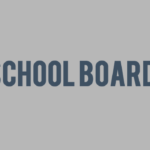What is Early Intervention?
Early Intervention is a collection of services families may need if their child, from birth to age 2, has developmental delays and/or health care needs. In Nebraska, early intervention services are outlined in the Early Intervention Act. Additional information about the Early Intervention Act and state regulations covering it can be found here.
How to Make a Referral
If you have a concern about your child’s development or your child has been diagnosed with a health condition that will affect his/her development, he/she may be eligible for early intervention services. Elkhorn Public Schools provides free evaluations for children ages birth to 2. To begin the process, please complete the form found here.
What Happens After Referral?
A Service Coordinator will contact you to talk about the early intervention program process, gather information about your child and family, and answer any questions. Following the initial contact, a Service Coordinator will:
– Arrange for an evaluation of your child
– Gather information about your family’s goals and concerns
– Convene a team meeting to develop a plan for services
– Make sure services are delivered smoothly and properly
– Inform you of services in the community
You are entitled to assistance from a Service Coordinator up to the time of the evaluation. If your child is determined eligible for early intervention services, Service Coordination will continue.
What are the steps to determining eligibility for Early Intervention Services? (Rule 52 – 006)
Within 45 days from the date of referral, the following activities must be conducted:
– Evaluation
– Child and Family Assessment (Routines Based Interview)
– Multidisciplinary Team determination of eligibility for Early Intervention Services
– Development of Individual Family Service Plan (IFSP)
Who will serve my child?
Professionals from a variety of educational specialties are assigned to the team, based on your child’s unique needs. A typical team includes a service coordinator, early childhood special education teacher, speech-language pathologist, occupational therapist, physical therapist, vision specialist, and school psychologist. The best-suited professional is selected to be the Primary Service Provider (PSP) and will be the main contact for the family. The PSP will have regular visits with the family to offer suggestions, answer questions and share information that may be relevant to the child’s needs. All team members remain available to support the PSP and family. Team meetings are held regularly for the PSP to update team members on the child’s progress. Team members can suggest additional strategies for the PSP to address the family’s questions and concerns. If necessary, team members can participate in co-visits with the PSP and family.
How often will visits occur?
The frequency of visits is determined based on the needs of the child and family and the recommendations of the IFSP team. During the school year, services follow the school district calendar so visits will not occur if school is not in session, including snow days. During the summer, services will continue to be scheduled regularly if your child is on an IFSP (Individual Family Service Plan).
Where will visits take place?
Visits occur in the child’s “natural environment” meaning wherever works best for the child and family such as in the home, a daycare setting, a park, or even a trip to the grocery store!
What will happen during a visit and do I need to “get ready” for the PSP to arrive?
Early intervention builds upon and provides support and resources to assist family members and caregivers to enhance children’s learning and development. This occurs through everyday learning opportunities so there is no need to prepare for a PSP visit. Infants and toddlers learn best through daily experiences and interactions with familiar people in familiar contexts. The primary purpose of the home visit and the PSP is to work with and support family members and caregivers in children’s lives. Your PSP is flexible and prepared to “go with the flow” during the home visit to meet your child’s needs and your concerns on that day.
Why a Primary Service Provider Model and natural environment? How can this help my child progress?
The PSP model is beneficial for families in a number of ways. The child and caregivers establish a relationship with the primary service provider. Having the team available for consultation allows families to gain information from professionals in a variety of educational disciplines with the convenience of making appointments with one provider. It’s the family and other constant caregivers that influence the child. The goal of early intervention is to maximize the influence of the PSP on the family and caregivers. All intervention for a child occurs between visits. The home visits should be where the family gets information, strategies, and encouragement so they can make the most of the learning opportunities that occur in the course of the child’s normal family life.
What if my child’s needs change?
As your child makes gains, the PSP will be monitoring all developmental areas. If you and the team determine a new concern has arisen, and a different professional on the team is better equipped to become the PSP, then that will occur. The most important person on your child’s team is you. Your input will always be respected and appreciated. Most of all, you will find that the relationship you build with your primary service provider will be one of trust and confidence.
Links:
Early Development Network

